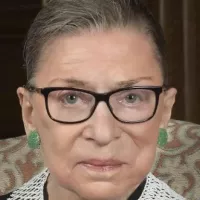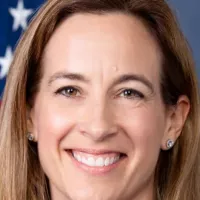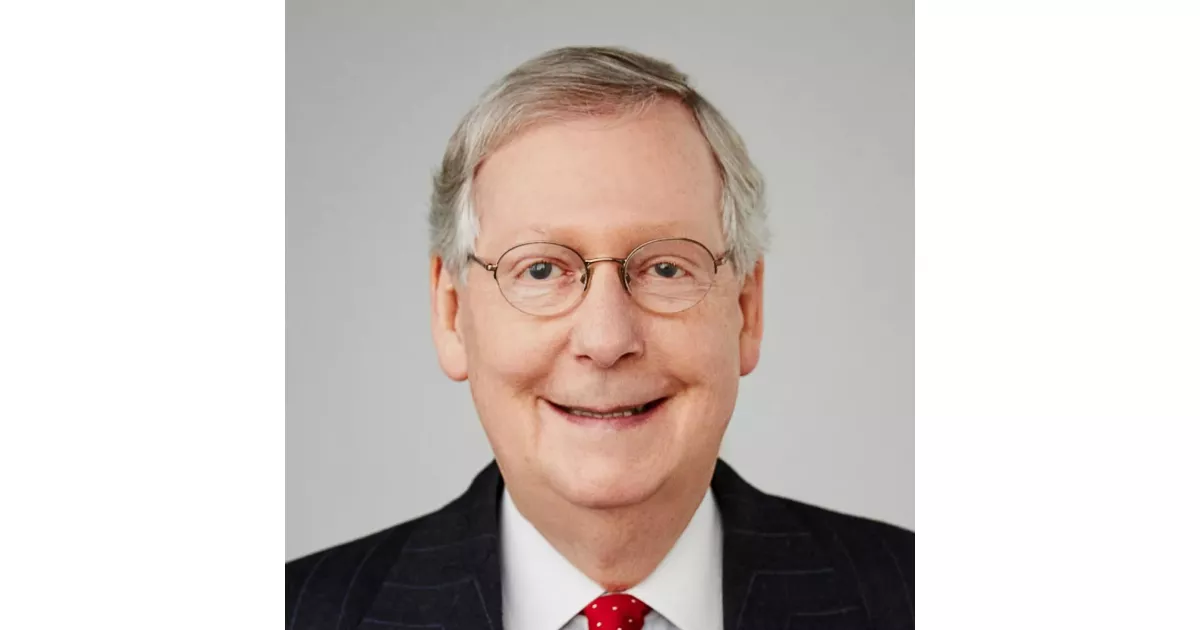How Mitch McConnell built a successful career. Explore key moments that defined the journey.
Addison Mitchell McConnell III is a prominent American politician and attorney currently serving as the senior United States senator from Kentucky, a position he has held since 1985. He is the longest-serving senator in Kentucky's history. McConnell's influence extends to his leadership within the Senate Republican Conference from 2007 to 2025, including terms as both minority and majority leader. Notably, he holds the record as the longest-serving Senate party leader in U.S. history, having served as majority leader from 2015 to 2021.
1937: Barkley Became Senate Party Leader
In 1937, Alben W. Barkley led the Democrats in the Senate.
1938: Lowest Voter Support Since 1938
In 2014, McConnell faced Matt Bevin in the Republican primary, where McConnell's 60.2% victory represented the lowest voter support for a Kentucky U.S. senator in a primary since 1938.
1949: Barkley stepped down as Senate Party Leader
In 1949, Alben W. Barkley stepped down as the Democrats party leader in the Senate.
1964: McConnell Interns with Senator John Sherman Cooper
In 1964, at the age of 22, Mitch McConnell attended civil rights rallies and interned with Senator John Sherman Cooper.
1968: McConnell Works for Senator Marlow Cook
In 1968, Mitch McConnell worked as chief legislative assistant to Senator Marlow Cook in Washington, D.C.
1968: First Republican win in Kentucky since 1968
McConnell was the first Republican to win a statewide election in Kentucky since 1968. His win benefited from the popularity of President Ronald Reagan.
1970: McConnell Ends Role as Legislative Assistant
In 1970, Mitch McConnell concluded his role as chief legislative assistant to Senator Marlow Cook in Washington, D.C.
1971: McConnell Returns to Louisville
In 1971, Mitch McConnell returned to Louisville and worked on Tom Emberton's unsuccessful campaign for governor of Kentucky.
October 1974: McConnell Becomes Deputy Assistant Attorney General
In October 1974, Mitch McConnell returned to Washington to fill a position as Deputy Assistant Attorney General under President Ford.
1975: McConnell Serves as Acting Assistant Attorney General
In 1975, Mitch McConnell served as acting United States Assistant Attorney General for the Office of Legislative Affairs under President Ford.
1977: McConnell Elected Jefferson County Judge/Executive
In 1977, Mitch McConnell was elected the Jefferson County judge/executive, defeating incumbent Democrat Todd Hollenbach III.
1981: McConnell Reelected Jefferson County Judge/Executive
In 1981, Mitch McConnell was reelected as the Jefferson County judge/executive, defeating Jim "Pop" Malone.
1984: McConnell wins U.S. Senate seat in Kentucky
In 1984, McConnell won the U.S. Senate seat in Kentucky against incumbent Walter Dee Huddleston by a narrow margin of 0.4%.
1984: McConnell Elected to U.S. Senate
In 1984, Mitch McConnell was elected to the U.S. Senate.
1985: McConnell Becomes Senator
In 1985, Mitch McConnell became the senior United States senator from Kentucky, a seat he has held since.
1990: McConnell wins Senate race against Harvey I. Sloane
In 1990, McConnell won against former Louisville Mayor Harvey I. Sloane by 4.4%.
1990: Closest Contest Since 1990
In 2008, Mitch McConnell's contest against Bruce Lunsford was his closest since 1990.
1996: McConnell defeats Steve Beshear
In 1996, McConnell defeated Steve Beshear by 12.6%, even as Bill Clinton narrowly carried the state. McConnell's campaign used television ads warning voters to not "Get BeSheared".
1997: McConnell founds the James Madison Center for Free Speech
In 1997, McConnell founded the James Madison Center for Free Speech, a legal-defense organization based in Washington, D.C.
1997: McConnell Chairs NRSC
In 1997, Mitch McConnell chaired the National Republican Senatorial Committee.
February 12, 1999: McConnell Votes on Clinton Impeachment
On February 12, 1999, Mitch McConnell was one of 50 senators to vote to convict and remove Bill Clinton from office.
2001: End of McConnell's NRSC Chairmanship
In 2001, Mitch McConnell's chairmanship of the National Republican Senatorial Committee ended.
2002: McConnell defeats Lois Combs Weinberg
In 2002, after running unopposed in the Republican primary, McConnell defeated Lois Combs Weinberg by 29.4%.
2004: Bush Reelection
In 2004, George W. Bush won reelection. McConnell learned that obstruction and Republican unity were the optimal ways to ensure Republican gains in upcoming elections after he observed how Democratic cooperation with the Bush administration on No Child Left Behind and Medicare Part D helped Bush's 2004 reelection.
2006: McConnell Elected Minority Leader
In 2006, after Republicans lost control of the Senate, they elected Mitch McConnell minority leader.
2007: McConnell publicly supported the Iraq War troop surge
In 2007, McConnell publicly supported the Iraq War troop surge.
2007: McConnell Becomes Senate Leader
In 2007, Mitch McConnell began serving as the leader of the Senate Republican Conference, including two stints as minority leader.
2008: McConnell defeats Bruce Lunsford
In 2008, McConnell faced his closest contest since 1990, defeating Bruce Lunsford by 6%.
June 2009: McConnell on Sotomayor Nomination
In June 2009, after Barack Obama nominated Sonia Sotomayor as associate justice, Mitch McConnell and Jeff Sessions opined that Sotomayor's 17 years as a federal judge and over 3,600 judicial opinions would require lengthy review and advocated against Democrats hastening the confirmation process.
May 2010: McConnell on Kagan Nomination
In May 2010, after President Obama nominated Elena Kagan to succeed the retiring John Paul Stevens, Mitch McConnell expressed concerns about her independence from the White House and announced his opposition to her confirmation, citing her lack of forthrightness on constitutional law views.
October 2010: McConnell's Goal: One-Term Obama Presidency
In October 2010, Mitch McConnell stated that his "single most important thing" was for President Obama to be a one-term president.
2010: Congress Bans Earmarks
In 2010, Congress banned the practice of earmarks, which Mitch McConnell regularly obtained for businesses and institutions in Kentucky.
2010: Supreme Court partially overturns Bipartisan Campaign Reform Act
In 2010, the Supreme Court made a ruling that partially overturned the Bipartisan Campaign Reform Act (McCain-Feingold), following McConnell's opposition to stricter campaign finance laws.
2010: Citizens United v. FEC Decision
In 2010, the U.S. Supreme Court delivered its decision in Citizens United v. FEC, partially overturning the Bipartisan Campaign Reform Act (McCain-Feingold). Mitch McConnell led opposition to stricter campaign finance laws, which culminated in this decision.
2011: Debt-Ceiling Crisis
In 2011, Mitch McConnell learned from the debt-ceiling crisis that "it's a hostage that's worth ransoming".
2013: Reid Eliminates Filibuster
In 2013, Senate Majority Leader Harry Reid eliminated the filibuster for all presidential nominations except the Supreme Court.
2013: Federal Government Shutdown
In 2013, the federal government shut down from October 1–17 after Congress failed to enact legislation to fund it.
2014: McConnell Becomes Senate Majority Leader
After Republicans took control of the Senate following the 2014 Senate elections, Mitch McConnell became the Senate majority leader.
2014: McConnell defeats Alison Lundergan Grimes
In 2014, McConnell defeated Democratic Secretary of State Alison Lundergan Grimes in the general election, 56.2–40.7%.
2014: McConnell Vows No Debt Default or Shutdown
In 2014, Mitch McConnell vowed that Republicans would not force the U.S. to default on its debt or shut down the government when stopgap funding measures were set to expire, and that he would not allow other Republicans to obstruct the budget-making process.
2014: Republicans Gain Senate Control; McConnell Becomes Majority Leader
In 2014, Republicans gained control of the Senate, and Mitch McConnell became majority leader. He then began what was considered "a near blockade" of Obama's judicial appointments.
2015: McConnell Becomes Senate Majority Leader
In 2015, Mitch McConnell became the Senate majority leader.
February 13, 2016: McConnell Blocks Obama's Supreme Court Nominee
On February 13, 2016, following the death of Supreme Court Justice Antonin Scalia, Mitch McConnell announced that the Senate would not consider any Supreme Court nominee put forth by President Obama, arguing that the American people should have a voice in the selection of their next Supreme Court justice.
March 16, 2016: Obama Nominates Merrick Garland to Supreme Court
On March 16, 2016, President Obama nominated Merrick Garland to the Supreme Court. Under Mitch McConnell's direction, Senate Republicans refused to take any action on the nomination.
May 4, 2016: McConnell Endorses Donald Trump
On May 4, 2016, after Rand Paul withdrew from the presidential race, Mitch McConnell endorsed Donald Trump as the presumptive nominee.
August 2016: McConnell Comments on Blocking Obama's Supreme Court Nominee
In August 2016, Mitch McConnell said that one of his proudest moments was when he told Barack Obama that he would not fill the Supreme Court vacancy.
January 3, 2017: Garland's Nomination Expires
On January 3, 2017, Merrick Garland's nomination to the Supreme Court expired with the end of the 114th Congress, due to the Senate's inaction under Mitch McConnell's direction.
January 2017: Trump Nominates Neil Gorsuch
In January 2017, President Trump nominated Neil Gorsuch to fill the Supreme Court vacancy left after Scalia's death.
April 7, 2017: Gorsuch Confirmed After Filibuster Eliminated
On April 7, 2017, Neil Gorsuch's nomination to the Supreme Court was confirmed after Mitch McConnell eliminated the filibuster on Supreme Court nominees.
April 2017: Republicans Eliminate Filibuster for Supreme Court Nominations
In April 2017, Senate Republicans led by Mitch McConnell eliminated the filibuster for Supreme Court nominations in order to end debate on the nomination of Neil Gorsuch.
October 2017: McConnell Defends Record Amid Criticism from Trump Allies
In October 2017, after White House chief strategist Stephen Bannon and other Trump allies blamed McConnell for stalling the Trump administration's legislation, McConnell defended his record by citing Neil Gorsuch's confirmation to the Supreme Court.
2017: Tax Cuts and Jobs Act passed
In 2017, McConnell led the passing of the Tax Cuts and Jobs Act as Senate majority leader.
2017: Republicans Fail to Repeal Obamacare
In 2017, Republicans failed to repeal the Affordable Care Act (Obamacare) during consolidated Republican control of government, dimming Mitch McConnell's reputation as a skilled political strategist.
2017: Record Circuit Court Judges Confirmed
In 2017, the record for the number of circuit court judges confirmed during a president's first year was broken.
April 2018: McConnell Calls Garland Nomination Decision Most Consequential
In April 2018, Mitch McConnell stated that the decision not to act on Merrick Garland's nomination to the Supreme Court was "the most consequential decision I've made in my entire public career".
June 2018: McConnell Longest-Serving Senate Republican Leader
In June 2018, Mitch McConnell became the longest-serving Senate Republican leader in U.S. history.
July 2018: Trump Nominates Kavanaugh to Supreme Court
In July 2018, Donald Trump nominated Brett Kavanaugh to replace the retiring Anthony Kennedy as an associate justice of the Supreme Court.
July 2018: McConnell delays border wall funding until after midterms
In July 2018, Mitch McConnell stated that funding for the Mexico–United States border wall would likely be delayed until after the midterm elections.
July 18, 2018: Senate Republicans Break Appeals Court Confirmation Record
On July 18, 2018, with Andy Oldham's Senate confirmation, Senate Republicans broke a record for the largest number of appeals court judiciary confirmations during a president's first two years. Oldham became the 23rd appeals court judge confirmed in Trump's term.
September 2018: Ford Accuses Kavanaugh of Sexual Assault
In September 2018, Christine Blasey Ford publicly alleged that Brett Kavanaugh had sexually assaulted her in 1982, leading to increased scrutiny of Kavanaugh's nomination. McConnell accused Democrats of creating an "extreme" distortion of Kavanaugh's record during his hearings.
October 2018: McConnell on Supreme Court Vacancy
In October 2018, Mitch McConnell stated that if a Supreme Court vacancy were to occur in 2020, he would not repeat his 2016 decision to let the winner of the upcoming presidential election nominate a justice, arguing that the 2016 precedent was not applicable because Republicans controlled both the presidency and the Senate in 2020.
December 2018: Senate passes appropriations bill without wall funding
In December 2018, the Republican-controlled Senate passed an appropriations bill without funding for the border wall. Despite this, Donald Trump ultimately refused to sign any bill that did not include wall funding, leading to a government shutdown.
December 22, 2018: Government shutdown begins due to border wall funding dispute
On December 22, 2018, the federal government entered a shutdown because Congress did not agree to Donald Trump's demand for $5.7 billion in federal funds for a U.S.–Mexico border wall.
2018: Economic Growth, Regulatory Relief and Consumer Protection Act passed
In 2018, McConnell led the passing of the Economic Growth, Regulatory Relief and Consumer Protection Act as Senate majority leader.
January 25, 2019: Government shutdown concludes
On January 25, 2019, the federal government shutdown, which began on December 22, 2018, due to disagreements over funding for a U.S.-Mexico border wall, came to an end.
May 2019: McConnell votes to confirm brother-in-law to PBGC
In May 2019, McConnell voted to confirm his brother-in-law, Gordon Hartogensis, as director of the Pension Benefit Guaranty Corporation (PBGC).
August 2019: McConnell Opposes Elimination of Filibuster
In August 2019, Mitch McConnell wrote an editorial for The New York Times strongly opposing the elimination of the filibuster on legislation.
November 5, 2019: McConnell Comments on Trump Impeachment Trial
On November 5, 2019, as the House of Representatives began public hearings on the impeachment of President Trump, Mitch McConnell stated that he was fairly certain how an impeachment trial would likely end, indicating it would not lead to Trump's removal from office.
December 14, 2019: McConnell Discusses Trump's Impeachment Trial Strategy
On December 14, 2019, Mitch McConnell met with White House counsel Pat Cipollone and White House legislative affairs director Eric Ueland. Later that day, he stated that he would be in "total coordination with the White House counsel's office" for Trump's impeachment trial and that there was "no chance" the Senate would convict Trump and remove him from office.
December 17, 2019: McConnell Rejects Witnesses for Trump's Impeachment Trial
On December 17, 2019, Mitch McConnell rejected a request to call four witnesses for Donald Trump's impeachment trial, stating that the Senate's role was to act as judge and jury, not to investigate. He also told the media he was not an impartial juror, calling it a political process.
2019: McConnell withholds votes on House Democrat measures
In 2019, Nancy Pelosi criticized McConnell for withholding votes on measures passed by the Democratic-controlled House during his time as Senate majority leader, including the For the People Act of 2019, the Equality Act, and the Paycheck Fairness Act.
2019: McConnell Credits Himself for Judicial Vacancies
In a 2019 interview, Mitch McConnell credited himself for the large number of judicial vacancies created in the last two years of Barack Obama's presidency.
March 2020: McConnell Encourages Judges to Retire
By March 2020, Mitch McConnell had contacted an unknown number of judges, encouraging them to retire before the 2020 election.
April 22, 2020: McConnell suggests states declare bankruptcy instead of receiving COVID-19 aid
On April 22, 2020, during a radio show, McConnell suggested that states should be able to declare bankruptcy instead of receiving additional COVID-19 aid. His comments were criticized by state and local officials.
September 10, 2020: COVID-19 relief bill fails in the Senate
On September 10, 2020, a COVID-19 relief bill crafted by McConnell failed to pass the Senate due to a Democratic filibuster. Democrats deemed the bill inadequate, while McConnell defended it as a compromise.
September 2020: McConnell Announces Senate Vote on Ginsburg Replacement
In September 2020, after the death of Ruth Bader Ginsburg, Mitch McConnell announced that the Senate would vote on Donald Trump's nominated replacement, setting the stage for a contentious confirmation process.
November 2020: McConnell re-elected to seventh term
In November 2020, McConnell was elected to his seventh term, defeating Amy McGrath by nearly 20 percentage points.
2020: McConnell directs COVID-19 response packages
In 2020, McConnell directed Senate Republicans in negotiations for two COVID-19 response packages: the Coronavirus Preparedness and Response Supplemental Appropriations Act, 2020 and the CARES Act. The CARES Act was the largest economic stimulus package in U.S. history.
2020: McConnell Criticizes Trump's Attempts to Overturn Election
In 2020, Mitch McConnell criticized Donald Trump's attempts to overturn the presidential election.
2020: McConnell Refuses to Recognize Biden's Victory Initially
In 2020, after Joe Biden defeated Trump in the election, McConnell initially refused to recognize Biden as the winner. While not repeating Trump's voter fraud claims, McConnell argued that Trump had the right to challenge the results and celebrated Republican Senate and House race wins.
January 12, 2021: Reported Support for Trump Impeachment
On January 12, 2021, it was reported that Mitch McConnell supported impeaching Donald Trump for his role in inciting the 2021 storming of the United States Capitol, believing it would help Republicans purge the party of Trump.
February 13, 2021: McConnell Votes to Acquit Trump
On February 13, 2021, Mitch McConnell voted to acquit Donald Trump in his impeachment trial, stating it was unconstitutional to convict a president who was no longer in office.
May 28, 2021: McConnell Votes Against Independent Commission for January 6 Attack
On May 28, 2021, Mitch McConnell voted against the creation of an independent commission to investigate the January 6 United States Capitol attack, after seeking to organize Republican senators to filibuster it.
October 2021: McConnell Helps Pass Debt Ceiling Extension
In October 2021, Mitch McConnell helped pass a bill that extended the debt ceiling, convincing 11 Republicans to vote with the Democrats to avoid a United States default on its debts.
2021: McConnell Becomes Senate Minority Leader
In 2021, Mitch McConnell served as Senate Minority Leader.
February 28, 2024: McConnell Announces Resignation as Senate Leader
On February 28, 2024, Mitch McConnell announced that he would step down as the Senate Republican Conference Leader in January 2025, but would serve the remainder of his Senate term.
2024: McConnell Steps Down as Senate Republican Leader
In 2024, Mitch McConnell stepped down as Senate Republican leader, months before the United States elections. John Thune was elected to succeed him after Republicans regained the majority in the 2024 U.S. Senate elections.
2024: McConnell Writes Essay on American Power
In late 2024, Mitch McConnell wrote an essay on his current view of American power and the foreign policy mistakes of former presidents.
January 2025: McConnell to Step Down as Senate Republican Leader
In January 2025, Mitch McConnell will step down as the Senate Republican Conference Leader.
February 20, 2025: McConnell Announces Retirement
On February 20, 2025, Mitch McConnell announced he would not run for an eighth Senate term in 2026 and would retire from politics.
June 2025: McConnell supports military intervention in Iran
In June 2025, McConnell supported Israel in the Iran–Israel War and called for military intervention by the United States against Iran.
2025: End of McConnell's Leadership
In 2025, Mitch McConnell concluded his service as the leader of the Senate Republican Conference.
2026: McConnell Retirement
In 2026, Mitch McConnell will retire from politics.
2027: McConnell Announces Retirement
In 2027, Mitch McConnell has announced he will retire at the end of his term, when he will be 84 years old.
Mentioned in this timeline

Donald John Trump is an American politician media personality and...

Bill Clinton the nd U S President - served as...

Barack Obama the th U S President - was the...

Martin Luther King Jr was a pivotal leader in the...

Ruth Bader Ginsburg was an American lawyer and Supreme Court...

The White House located at Pennsylvania Avenue NW in Washington...
Trending

Davos is a resort town and municipality situated in the canton of Graub nden Switzerland within the Rhaetian Alps It...

2 months ago Alexander Skarsgård reminds Miriam Margolyes of their meeting; addresses sexuality question, states 'not really' gay.

2 months ago Sherrill Considers Action Against Trump, NJ Mulls Federal Tax Halt.

2 months ago Rohit Sharma and Virat Kohli achieve milestones in India vs South Africa ODI.
Andor is a science fiction political spy thriller series on Disney created by Tony Gilroy A prequel to 'Rogue One'...

9 months ago Oklahoma Dominates NCAA Women's Gymnastics Championship 2025, UCLA takes second place after defeat.
Popular

XXXTentacion born Jahseh Dwayne Ricardo Onfroy was a controversial yet...

Thomas Douglas Homan is an American law enforcement officer who...

William Franklin Graham III commonly known as Franklin Graham is...
Matt and Ross Duffer known as the Duffer Brothers are...

Martin Luther King Jr was a pivotal leader in the...

Bruno Mars Peter Gene Hernandez is an acclaimed American singer-songwriter...
